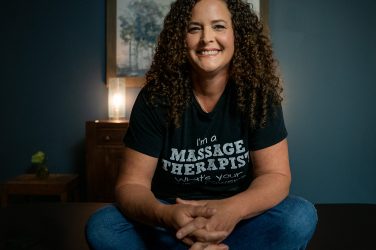
Q&A
Orthopedic Surgeon
How long is the recovery after a joint replacement surgery?
Typically, most of your recovery takes six to eight weeks, though you will continue to heal for up to a year. This is true for any joint replacement, knees or hips, though it can be quicker depending on how much you exercise. The more you exercise, the faster you recover from the surgery. We start you on physical therapy the day of or the morning after surgery, and as you go home, you do home health or outpatient therapy depending on pain and preference. Again, the more diligent you are, the less pain you’ll have in the long term. We have some patients who exercise five times a day and are done and back to work within a few weeks.
What are gel shots, and do they work?
There are two types of injections: cortisone or steroid injections and gel injections. The gel injections make the fluid inside the joint slippery to relieve pain and discomfort. That said, results vary depending on each person’s chemistry. They are supposed to last about six months and possibly longer and could be a great alternative to surgery, but effectiveness can be hit or miss. So, it’s worth trying, but not all insurances cover it. To learn more about these alternatives, please schedule an appointment at DallasOrtho.com.
How do I know if I’m a candidate for joint replacement surgery?
Moderate to severe pain for a prolonged period is typically the primary indicator, along with failed conservative approaches like anti-inflammatory medications, cortisone injections, knee braces, etc. If you simply have a flare-up because you went on vacation and did activities you don’t usually do, we stick to conservative measures to see if we can improve your pain situation.
Is there a preferred age for joint replacement surgery?
It used to be that we wouldn’t do joint replacement for anyone under age 65. But as modalities have improved and with the current generation of implants, plastics, and technologies, they should last 20 to 25 years if you take care of them. As a result, we have switched to late 40s and up. If you’re younger than that, it depends on individual cases. If someone has severe joint pain and wear and tear, or there’s a traumatic injury where conservative measures have failed, we can have that conversation to determine if joint replacement is the right decision.
How do I determine which option is right for me?
My recommendation is to start with conservative treatment. If that doesn’t work, we can take X-rays to determine how severe your arthritis is and consider other options. Essentially, when you feel that you have tried everything else, that’s the time to say yes — it’s time to look into joint replacement surgery.
Physicians are employees of HealthTexas Provider Network, a member of Baylor Scott & White Health. ©2024
About The Expert

Mohamed N. Mahomed, MD
Baylor Scott & White Orthopedic Associates of Dallas— Lake Pointe
Dr. Mahomed, is a board certified orthopedic surgeon specializing in adult hip and knee reconstruction. He earned his medical degree from the University of Toronto and completed his residency at the same university. He completed his fellowships in adult reconstruction at Toronto East General and Orthopaedic Hospital and Inselspital Bern University Hospital and arthroplasty and adult reconstruction at University Berne.










